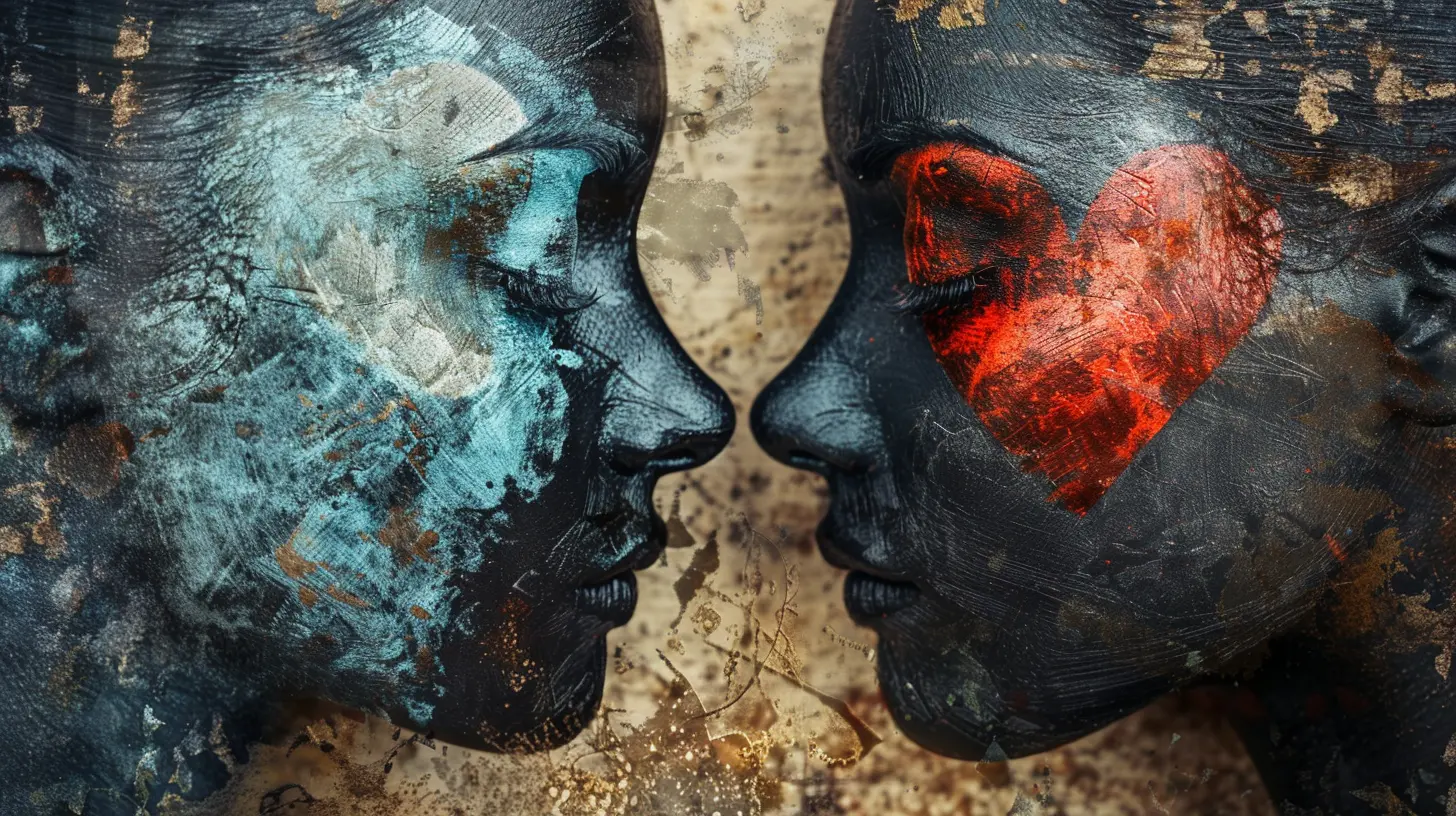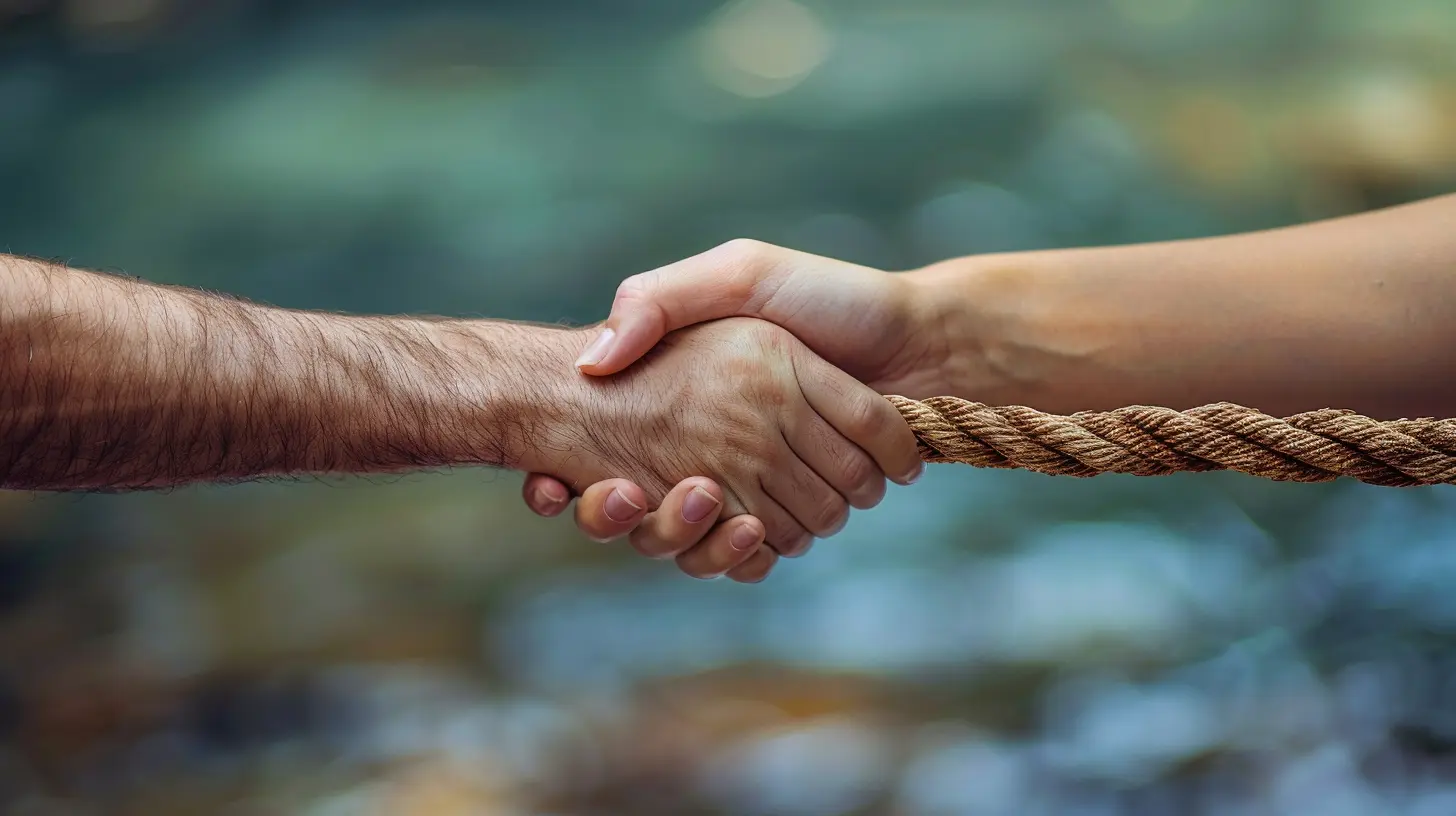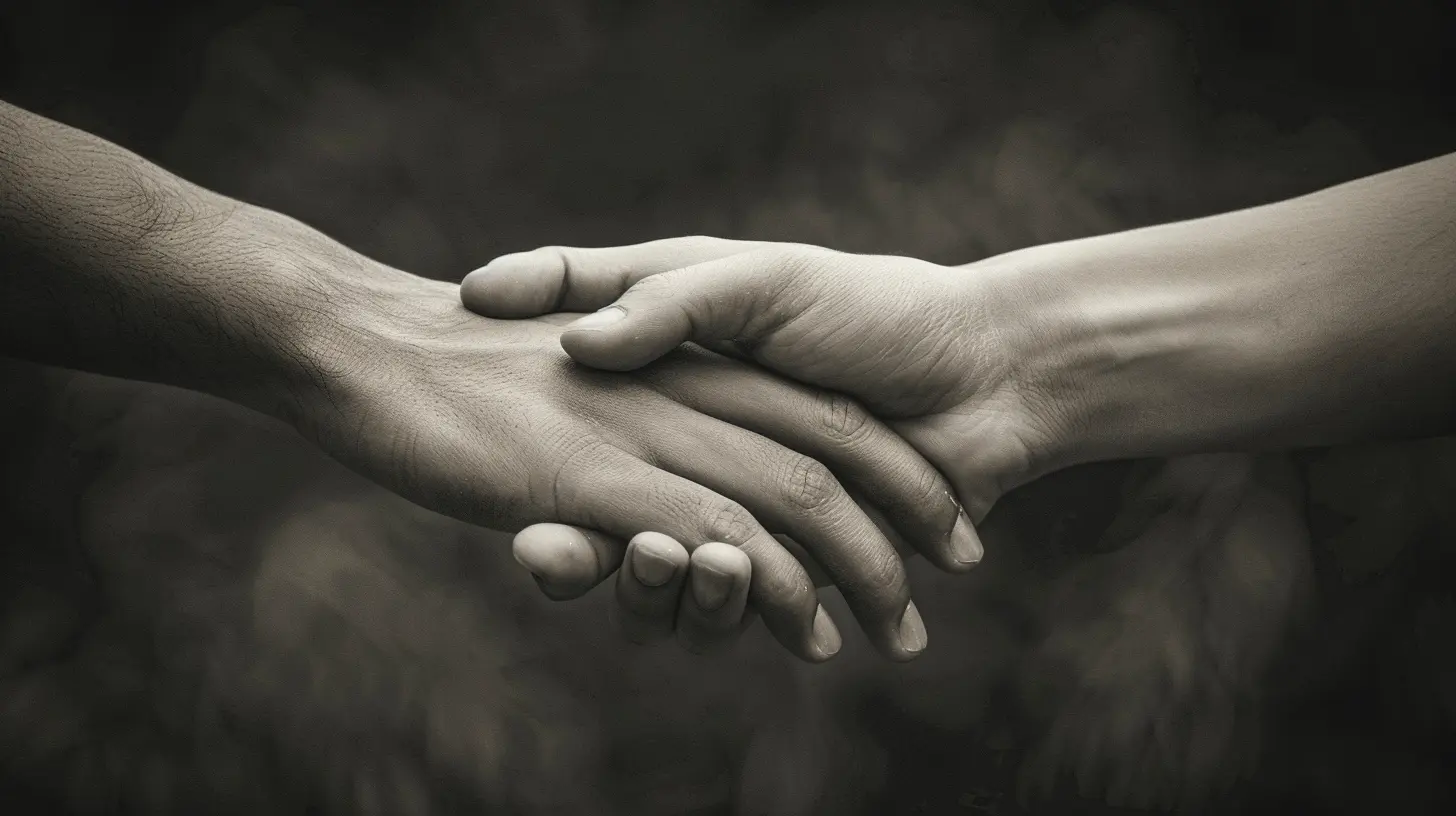The Power of Vulnerability in Strengthening Relationships
29 April 2025
Let’s face it: being vulnerable is scary. It feels a lot like standing in front of a crowd, totally exposed, hoping no one will laugh or point fingers. But what if I told you that this very exposure—this raw, unfiltered honesty—is exactly what your relationships need? Yes, vulnerability is often seen as a weakness, but when it comes to building strong, lasting connections, it’s actually a superpower.
In this article, we’ll dive deep into the power of vulnerability in relationships, how it can strengthen bonds, create deeper emotional intimacy, and why it’s the secret ingredient you didn’t know you needed. Ready to lower your guard? Let’s go.

What Does Vulnerability Really Mean?
We often associate vulnerability with negative connotations—weakness, insecurity, or even shame. But in reality, vulnerability is about being open and honest, especially when it’s hard. It’s about showing your true self, imperfections and all, without the fear of judgment.Think of vulnerability as removing your metaphorical armor. Sure, it can feel risky, but it’s also the very thing that allows people to truly see you and connect with you on a deeper level. It's the emotional glue that binds people together.
Vulnerability Is Not Weakness
Here’s the first myth we need to bust: vulnerability is NOT weakness. In fact, it’s quite the opposite. It takes immense courage to be vulnerable because it means exposing parts of yourself that you might not even feel comfortable with. Yet, when you do so, you’re presenting yourself as authentic and real. And let’s be honest—who doesn’t want to connect with someone who’s real?Dr. Brené Brown, a research professor and expert on vulnerability, puts it best: “Vulnerability is not winning or losing; it’s having the courage to show up and be seen when we have no control over the outcome.”

Why Vulnerability is Essential for Strong Relationships
At its core, vulnerability creates trust. Imagine trying to build a relationship where both people are constantly guarded, never letting their true emotions show. It doesn’t work, right? Relationships thrive on authenticity, honesty, and emotional depth—vulnerability is the key that unlocks all of that.Let’s break down why vulnerability is a game changer for relationships:
1. It Fosters Deeper Emotional Intimacy
When you allow yourself to be vulnerable, you’re giving your partner—or friend, or family member—a glimpse into your innermost thoughts and feelings. This creates a bond that goes beyond surface-level interactions.Think about it: when was the last time you felt truly connected with someone after talking about the weather? Exactly. Real connection happens when we share our fears, dreams, insecurities, and joys—when we’re vulnerable.
2. It Builds Trust and Strengthens Bonds
Trust is the foundation of any healthy relationship, and vulnerability is essential for building it. When you’re open and honest about what’s going on inside, you’re signaling to the other person that you trust them enough to share your true self.In return, this often encourages them to do the same. It’s a two-way street—a beautiful cycle of openness that strengthens your bond.
3. It Encourages Mutual Understanding
Let’s be real: no one is a mind reader. If you’re bottling up your emotions, frustrations, or desires, how is the other person supposed to know what’s going on in your head? Vulnerability eliminates the guesswork.When you express yourself openly, you’re giving others the chance to understand you better. This leads to fewer misunderstandings and more harmony in your relationships.
4. It Promotes Emotional Growth
Here’s the truth: vulnerability makes you grow. When you face your fears and allow yourself to be seen as you are, you’re stepping out of your comfort zone. It challenges you to confront your insecurities and accept yourself fully—and this self-acceptance is crucial for personal and relational growth.In many ways, vulnerability is like exercising a muscle. The more you practice it, the stronger and more resilient you—and your relationships—become.

How to Be Vulnerable in Your Relationships
Okay, so vulnerability is important. But how do you actually do it? It’s not like there’s a switch you can flip, and suddenly you’re an open book. Vulnerability takes practice, patience, and a bit of courage.Here are some actionable steps to help you become more vulnerable in your relationships:
1. Start Small
Being vulnerable doesn’t mean you have to air all your deepest insecurities right off the bat. Start small. Share something personal but not too overwhelming—maybe a fear or a past experience that made you feel vulnerable. As trust builds, you can gradually open up more.2. Be Honest About Your Feelings
One of the easiest ways to practice vulnerability is to simply be honest about how you feel. If something bothers you, say it. If you’re feeling hurt or unsure, express it. Don’t sugarcoat your emotions, and don’t hide behind a mask of indifference.3. Ask for What You Need
Vulnerability is also about expressing your needs. Sometimes we expect others to just know what we want or need from them, but that’s often not the case. If you need support, reassurance, or even space, communicate that openly.4. Embrace Imperfection
Let’s face it: none of us are perfect. We all have flaws, insecurities, and moments of doubt. Vulnerability is about embracing these imperfections and allowing others to see them. You don’t have to have it all together all the time—let your guard down and show your human side.5. Be Patient and Give It Time
Vulnerability doesn’t happen overnight. It’s a process, and it takes time to build the trust and safety needed to be fully open with someone. Be patient with yourself and with the other person as you both work toward deeper connection.
The Risks (And Rewards) of Vulnerability
Now, let’s be real: vulnerability comes with risks. Opening up to someone means they could reject, judge, or hurt you. It’s a leap of faith, and sometimes things don’t go as planned. But here’s the thing: the rewards far outweigh the risks.When you allow yourself to be vulnerable, you’re giving your relationships the opportunity to flourish in ways they never could if you stayed guarded. You’re creating space for trust, emotional intimacy, and genuine connection. Yes, there’s a chance of getting hurt, but there’s also a chance of experiencing deeper love and understanding than you ever thought possible.
Vulnerability and Conflict
One of the biggest misconceptions about vulnerability is that it’s only useful in the good times. But here’s the kicker: vulnerability is actually most important during conflict. When things get tough, it’s easy to shut down, put up walls, and go into self-protection mode. But this is when vulnerability is needed the most.Instead of lashing out or withdrawing, try expressing your true feelings during a conflict. Say things like, “I feel hurt because…” or “I’m scared that…” rather than assigning blame or shutting down. This opens the door for honest communication and makes it easier to resolve the issue at hand.
Vulnerability in Romantic Relationships
When it comes to romantic relationships, vulnerability is the secret sauce. Whether you’re in a new relationship or have been together for years, vulnerability is what keeps the emotional connection alive.In romantic partnerships, vulnerability means sharing your fears, your hopes, your desires, and even your past wounds. It’s about being open to love, even when it scares you. And yes, it can be terrifying to let someone in that deeply, but it’s also the only way to experience true intimacy.
Vulnerability and Love
Love and vulnerability go hand-in-hand. In fact, love without vulnerability isn’t really love at all—it’s just a performance. When you allow yourself to be vulnerable with your partner, you’re giving them the chance to love you for who you truly are, not the version of yourself you think they want to see.And isn’t that what we all want? To be loved for who we really are?
Vulnerability in Friendships
Vulnerability isn’t just for romantic relationships—it’s equally important in friendships. In fact, some of the strongest friendships are built on a foundation of vulnerability.When you’re vulnerable with a friend, you’re showing them that you trust them enough to let them in. You’re giving them the opportunity to support you, and in return, you’re creating a friendship that’s based on authenticity and mutual understanding.
Conclusion: The Power of Vulnerability
At the end of the day, vulnerability is the key to strong, meaningful relationships. It’s the bridge that connects us to each other, allowing us to build trust, deepen emotional intimacy, and grow together. Yes, it’s scary, but the rewards are worth the risk.So, whether it’s with your partner, your friends, or your family, I challenge you to embrace vulnerability. Start small, be honest, and watch how your relationships transform for the better. After all, true connection can only happen when we allow ourselves to be truly seen.
all images in this post were generated using AI tools
Category:
RelationshipsAuthor:

Alexandra Butler
Discussion
rate this article
3 comments
Faelan Bailey
Vulnerability reveals our humanity, fostering deeper connections and genuine understanding.
May 7, 2025 at 3:12 PM

Alexandra Butler
Thank you for your insightful comment! I completely agree—embracing vulnerability truly deepens our connections and enhances our understanding of one another.
Orion Spencer
Vulnerability is not a weakness; it’s the bridge to authentic connection. Embracing our true selves fosters empathy and trust, transforming relationships into profound bonds where genuine understanding flourishes.
May 3, 2025 at 4:18 PM

Alexandra Butler
Thank you for your insightful comment! I completely agree—embracing vulnerability indeed deepens connections and fosters genuine understanding in our relationships.
Iliana Wells
This article insightfully highlights how vulnerability fosters deeper connections. By exposing our true selves, we create a safe space for authenticity, enabling trust and empathy. Embracing vulnerability can transform relationships, encouraging mutual support and understanding in an increasingly disconnected world.
April 29, 2025 at 2:58 PM

Alexandra Butler
Thank you for your insightful comment! I'm glad the article resonated with you—embracing vulnerability truly is key to building authentic connections.



